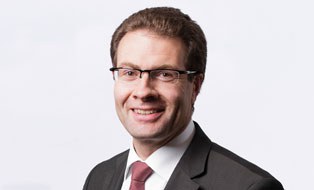Feb 03, 2020
Dresden-based researcher in materials technology and laser applications becomes a member of the Scientific Society for Laser Technology
The general meeting of the Scientific Society for Laser Technology (WLT) has unanimously approved the admission of Prof. Christoph Leyens as a new member. Prof. Leyens is Director of the Institute of Materials Science at TUD Dresden University of Technology and Director of the Fraunhofer Institute for Material and Beam Technology (IWS) in Dresden, where he combines his expertise in materials technology with laser processes such as cutting, joining, heat treatment, structuring, coating and additive manufacturing.
The WLT's goal is to promote laser technology and to advance the development of laser radiation, i.e. light, as a universally applicable tool in order to make significant contributions to photonic technologies in science and industrial applications. What makes the WLT special is the uniform and broad representation of research institutions from the natural sciences, engineering and medicine in the field of laser technology and optical technologies. The WLT thus traverses the gap between laser-oriented research and development, industrial production and medical applications (www.wlt.de). Moreover, fostering early-career researchers is one of the WLT's top priorities.
“My acceptance into the WLT shows how important it is to its members to link different disciplines so that we can continue to enable disruptive developments in the future,” says Leyens in his initial statement. The Dresden scientist has always crossed the boundaries between the “worlds” of materials and manufacturing technology. His teams' research at TUD Dresden University of Technology and Fraunhofer IWS investigates the interactions between laser light as an energy source that can be controlled with extreme precision and as a non-contact tool with a wide variety of materials. “Lasers can be used to process all materials, whether metals, plastics, ceramics or glass. You just have to know how it works,” explains Leyens. “It's no wonder that modern manufacturing technology would be unthinkable without laser technology. Nevertheless, science must continue to provide answers to increasingly complicated questions in the future so that we can maintain the excellent position of laser technology in Germany and Europe. In addition to scientific excellence, we particularly need bright minds who are trained at academic universities or non-university research institutions such as the Fraunhofer Institutes and then transfer their knowledge to companies in industry.”
For more in-depth details, please contact
 © Christian Hüller
© Christian Hüller
Professor
NameMr Prof. Dr.-Ing. habil. Christoph Leyens
Institusdirektor, Professor für Werkstofftechnik
Send encrypted email via the SecureMail portal (for TUD external users only).
